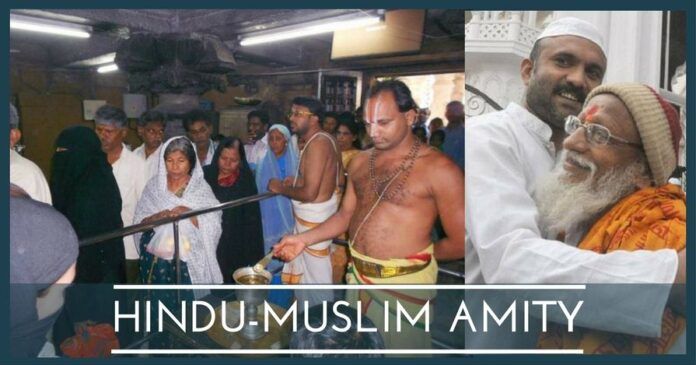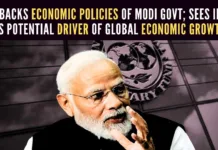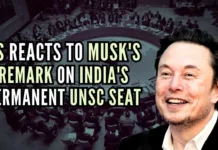
Hindus and Muslims who lived together in India for centuries should be able to resolve the issues between them
There is an increasing divide developing between Hindus and Muslims. And that’s not good for the society. There is a small percentage of people on both the sides (mostly politicians, hardliners and media people) who not only contribute to it but also aggravate it. This tends to make things worse.
Some, especially among liberals, argue that there are broadly no issues between the Hindus and the Muslims and the differences are restricted to a few extreme elements who won’t mend their ways anyway, and so nothing can be or needs to be done about it; things will settle down over time. This is only partly true; whether we like it or not, there is a lingering concern/ suspicion of the average person of each community against the other, even if it has not yet taken the form of enmity. This is reflected in WhatsApp messages doing the rounds in each community.
Mainly, some (or many?) Muslims believe that, under Modi’s Government, they have become second-class citizens in India. Whether one agrees with this perception or not, one has to acknowledge the existence of such a view.
It is the lingering concern/ suspicion about each other’s community which is at the core of mutual recriminations; which extremist elements and politicians capitalise on.
Similarly, some (or many?) Hindus suspect that Muslims are slowly working their way to becoming the majority community in India over time and that the Hindus will be left with no country where they would be a majority, while Muslims are the majority in about half the number of countries in the world. Whether one agrees with this or not, one has to acknowledge the existence of such a view.
It is this lingering concern/ suspicion about each other’s community that is at the core of mutual recriminations; extremist elements and politicians capitalise on this. It surely cannot hurt for both sides to take an initiative to address the mutual concerns and suspicions.
Sure enough, whether there will be an agreement within each community for such a Hindu-Muslim consensus is a moot point, but if there is a strong popular movement from both the sides for such a consensus with a clear plan of action, who knows, it may be possible to bring about a fair level of Hindu-Muslim amity, despite opposition from religious and/ or political leaders on either side (or both sides).
A sincere effort can (and must) be made. When China and India, two adversarial countries, which looked set to go to war, could set aside their differences and agree to work together for mutual benefit, even if only out of political compulsions, Hindus and Muslims who are both equal partners in India and who have lived together for centuries, should be able to resolve the issues between them and work together in national interest too, without compromising heavily on their respective interests.
Perhaps moderates from both the communities should sit together and pave the way for creating amity between the two sides, but without dismissing the mutual concerns.
As a first step, they could list the areas of differences and distrust. While listing, both the sides should ensure that this is done without provoking or giving offence to the other community. And both sides should also be willing to listen to the views of the other side without unduly getting provoked. If we can do just this, it would be half the work done.
Politicians and media may be kept out of it, at least initially. Involving them from the start will only complicate matters. They may be brought in after a certain level of understanding is reached.
Professionals (like retired judges, advocates, doctors, IT professionals and teachers), and businesspeople from both the sides can be part of the initiative.
The question will arise as to who are the people who will get involved in this from each side, to start with. The first prerequisite may be that the persons getting involved should be open-minded, and be willing to listen to the concerns of the other side unprovoked, and understand, without necessarily having to accept the other side’s point of view. Professionals (like retired judges, advocates, doctors, IT professionals and teachers), and businesspeople from both the sides can be part of the initiative.
Next, each side should have internal discussions and identify a small number of representatives (say 5) to be deputed from their side for discussions. All of them need not (and ideally should not) represent the same viewpoint.
Then, these members from the 2 sides can identify a group of neutral Facilitators/ Conciliators (say 3), who need not act as moderators/ mediators. Their role should be mere to facilitate the conduct of the meetings in a fair and friendly atmosphere. Umpires won’t help because what is required is creating a meeting of minds, not judicial arbitration.
Neither side is likely to be a monolith; e.g., Hindus could consist of representatives of many denominations, castes, regions and the like. Similarly, Muslims could also include representatives of multiple denominations. Identifying the representatives, by itself, will be a major task. Both the sides will have varying degrees of moderates too.
Both the sides should understand the limitations of this exercise, and realise that everyone in the other camp may not abide by the agreements reached.
Even if the differences and distrust are not resolved, if each side merely tries to understand the concerns of the other side, it will be a good first step. Even if the whole process takes a long time, say a few years, or is never-ending, the fact that such an initiative has been set in motion itself will send a positive message to the people from both the communities, and both the sides should show patience in the meantime. At least people on both the sides would have recognised that there are genuine concerns of people on both the sides.
Both the sides should also understand the limitations of this exercise, and realise that, even if some agreements are reached, everyone in the other camp may not accept and abide by the agreements reached. So, expectations should be set realistically. If some minimal agreements can be reached, and both the sides follow them broadly, additional initiatives can be taken over time, even if only incrementally.
Social media can be used by the two groups in mobilising public opinion in favour of this initiative.
These are just initial the set of ideas. Ideas and suggestions to make this happen are welcome from everyone.
Note:
1. The views expressed here are those of the author and do not necessarily represent or reflect the views of PGurus.
- How BJP can get 33%+ vote share in TN - April 1, 2024
- A transparent, equitable electoral funding alternative - March 19, 2024
- How TN BJP can come to No. 1 or No. 2 in 2024 LS polls - January 11, 2024











A good suggestion. I think it will work even better if it is done at a local level; viz., in small neighborhoods where such groups are formed from people who live in the locality, rather than someone sitting somewhere and tweeting about it.
Makes sense. In today’s complex scenario, such options only can work. Its job of matured citizens who really care for peace and prosperity of this nation and world at large. Nicely put.